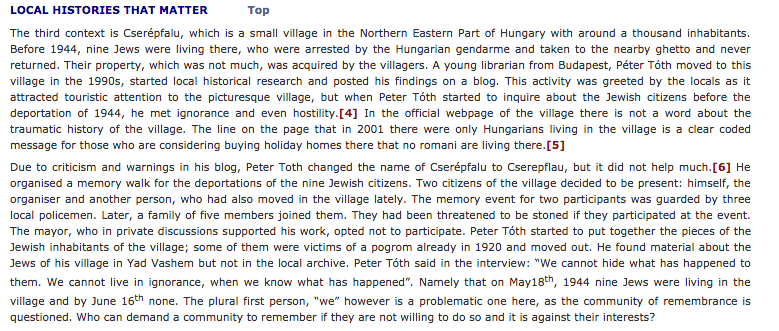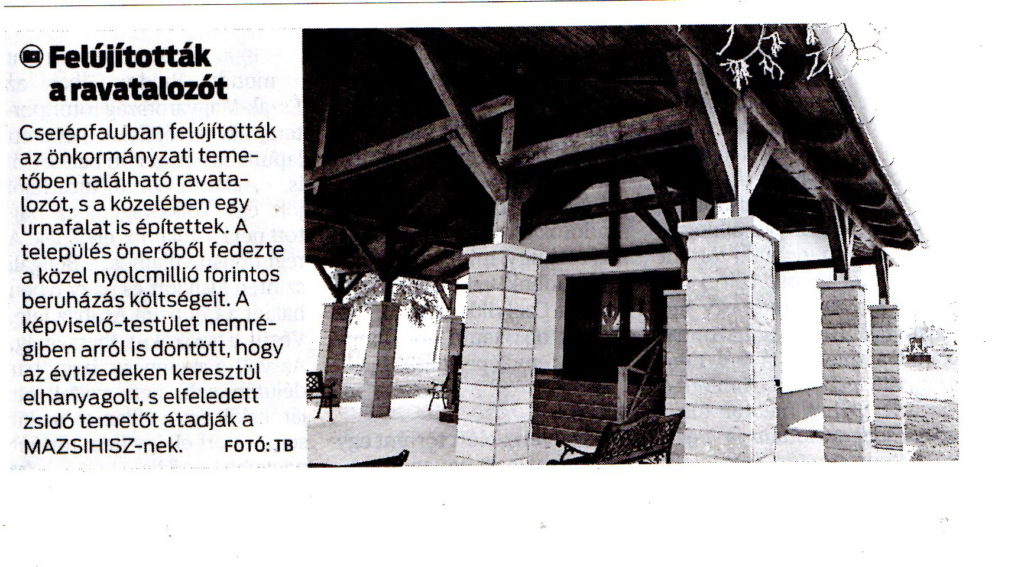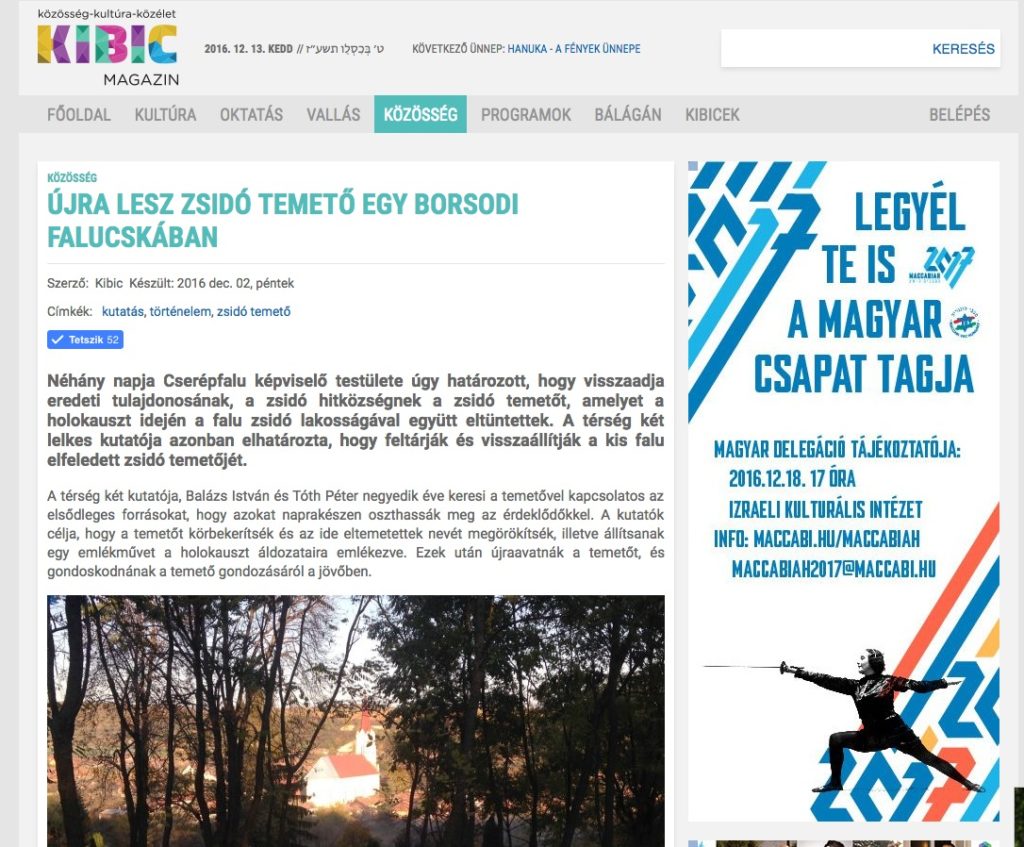Kiküldtem pár hete a meghívókat a 2. Groszmann LIli napra. Megjelent pár újabb sajtóanyag a 24-i sétáról, a miniszterelnök és az országgyűlés elnöke már visszajelzett, hogy nem vesznek részt az emlékezésen. Kikerült a Cserepfalu.hu-ra is a plakátunk.
Találtam egy érdekes angol nyelvű dolgozatot a hazai “nem emlékezésről”.
A címe:
“Hungary 70”: Non-remembering the Holocaust in Hungary
Így kezdődik a mi részünk:
The third context is Cserépfalu, which is a small village in the Northern Eastern Part of Hungary with around a thousand inhabitants.
Klasszul beszámol a szerző a kutatásunkról és a tavalyi emléksétáról, viszont a végén kifogásolja a többes számban megírt gondolatunkat:
Nem élhetünk tudatlanságban, ha egyszer tudunk.
The plural first person, “we” however is a problematic one here, as the community of remembrance is questioned. Who can demand a community to remember if they are not willing to do so and it is against their interests?
Ha egy közösség nem hajlandó emlékezni, akkor mi van? Egy másik témában is a királyi többesről beszélgettem kutatótársammal, majd ezzel is folytatjuk.
Készítettem egy képernyőfotót a cikkről:

LOCAL HISTORIES THAT MATTER The third context is Cserépfalu, which is a small village in the Northern Eastern Part of Hungary with around a thousand inhabitants. Before 1944, nine Jews were living there, who were arrested by the Hungarian gendarme and taken to the nearby ghetto and never returned. Their property, which was not much, was acquired by the villagers. A young librarian from Budapest, Péter Tóth moved to this village in the 1990s, started local historical research and posted his findings on a blog. This activity was greeted by the locals as it attracted touristic attention to the picturesque village, but when Peter Tóth started to inquire about the Jewish citizens before the deportation of 1944, he met ignorance and even hostility.4 In the official webpage of the village there is not a word about the traumatic history of the village. The line on the page that in 2001 there were only Hungarians living in the village is a clear coded message for those who are considering buying holiday homes there that no romani are living there.5 Due to criticism and warnings in his blog, Peter Toth changed the name of Cserépfalu to Cserepflau, but it did not help much.6 He organised a memory walk for the deportations of the nine Jewish citizens. Two citizens of the village decided to be present: himself, the organiser and another person, who had also moved in the village lately. The memory event for two participants was guarded by three local policemen. Later, a family of five members joined them. They had been threatened to be stoned if they participated at the event. The mayor, who in private discussions supported his work, opted not to participate. Peter Tóth started to put together the pieces of the Jewish inhabitants of the village; some of them were victims of a pogrom already in 1920 and moved out. He found material about the Jews of his village in Yad Vashem but not in the local archive. Peter Tóth said in the interview: “We cannot hide what has happened to them. We cannot live in ignorance, when we know what has happened”. Namely that on May18th, 1944 nine Jews were living in the village and by June 16th none. The plural first person, “we” however is a problematic one here, as the community of remembrance is questioned. Who can demand a community to remember if they are not willing to do so and it is against their interests?
Itt az egész PDF
“Hungary 70”: Non-remembering the Holocaust in Hungary Andrea Petö


